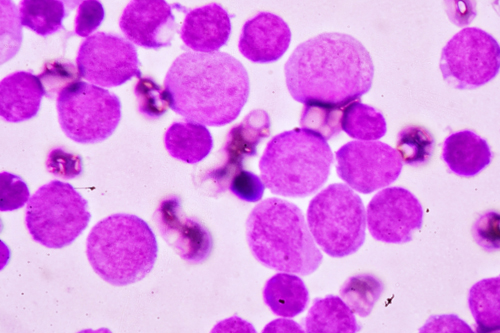Adul Acute Myeloid Leukemia (AML) In Nagpur
Treatments / Adul Acute Myeloid Leukemia (AML) In Nagpur

What is the Adul Acute Myeloid Leukemia (AML) In Nagpur
Adul acute myeloid leukemia in nagpur (AML) is a rare and aggressive cancer that impacts the bone marrow and blood. It generally occurs due to mutations in specific genes or chromosomes.
While AML predominantly affects individuals aged 60 and older, it can also occur in younger adults and children. This life-threatening condition requires prompt treatment. Fortunately, advancements in therapies are enabling patients to live longer with AML.
What are acute myeloid leukemia types?
Acute Myeloid Leukemia (AML) encompasses several subtypes, each affecting blood cell levels uniquely and exhibiting distinct symptoms and treatment responses.
Medical pathologists classify AML subtypes by examining cancerous cells under a microscope, analyzing chromosomal changes, and identifying mutations in specific genes that regulate cell growth and function.
The main AML subtypes are:
- Myeloid leukemia: This subtype involves cancer in the cells that produce neutrophils, a type of white blood cell. It is the most common subtype of AML.
- Acute monocytic leukemia (AML-M5): This subtype affects cells that produce monocytes, another type of white blood cell.
- Acute megakaryocytic leukemia (AMLK): This subtype targets cells that produce red blood cells or platelets.
- Acute promyelocytic leukemia (APL): This subtype involves cancer in promyelocytes, which are immature white blood cells, preventing them from maturing properly.
What are acute myeloid leukemia symptoms?
In its early stages, AML symptoms may resemble those of a persistent cold or flu. Acute myeloid leukemia is aggressive, leading to the rapid development of more noticeable symptoms. Later symptoms include:
- Dizziness
- Easy bruising or bleeding, including frequent nosebleeds and bleeding gums
- Fatigue
- Feeling cold
- Fever
- Night sweats
- Frequent infections or infections that don’t go away
- Headaches
- Loss of appetite
- Unexplained weight loss
- Pale skin
- Shortness of breath (dyspnea)
- Swollen lymph nodes
- Weakness
- Bone, back, or abdominal pain
- Tiny red spots on the skin (petechiae)
- Wounds or sores that don’t heal
What are treatments for acute myeloid leukemia?
In its early stages, AML symptoms may resemble those of a persistent cold or flu. Acute myeloid leukemia is aggressive, leading to the rapid development of more noticeable symptoms. Later symptoms include:
- Dizziness
- Easy bruising or bleeding, including frequent nosebleeds and bleeding gums
- Fatigue
- Feeling cold
- Fever
- Night sweats
- Frequent infections or infections that don’t go away
- Headaches
- Loss of appetite
- Unexplained weight loss
- Pale skin
- Shortness of breath (dyspnea)
- Swollen lymph nodes
- Weakness
- Bone, back, or abdominal pain
- Tiny red spots on the skin (petechiae)
- Wounds or sores that don’t heal
